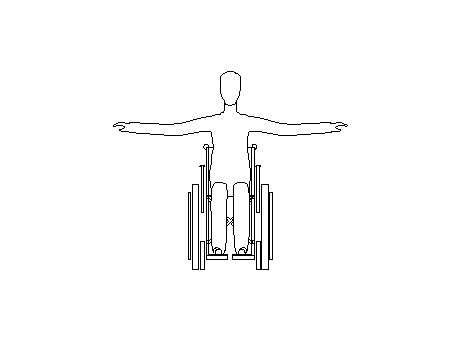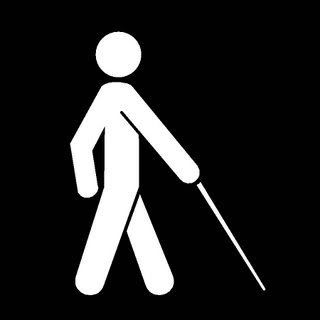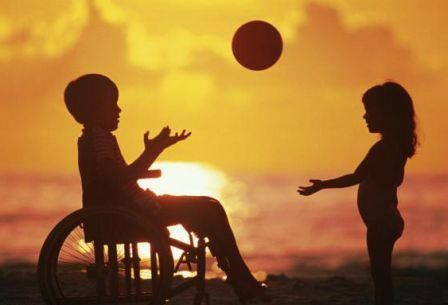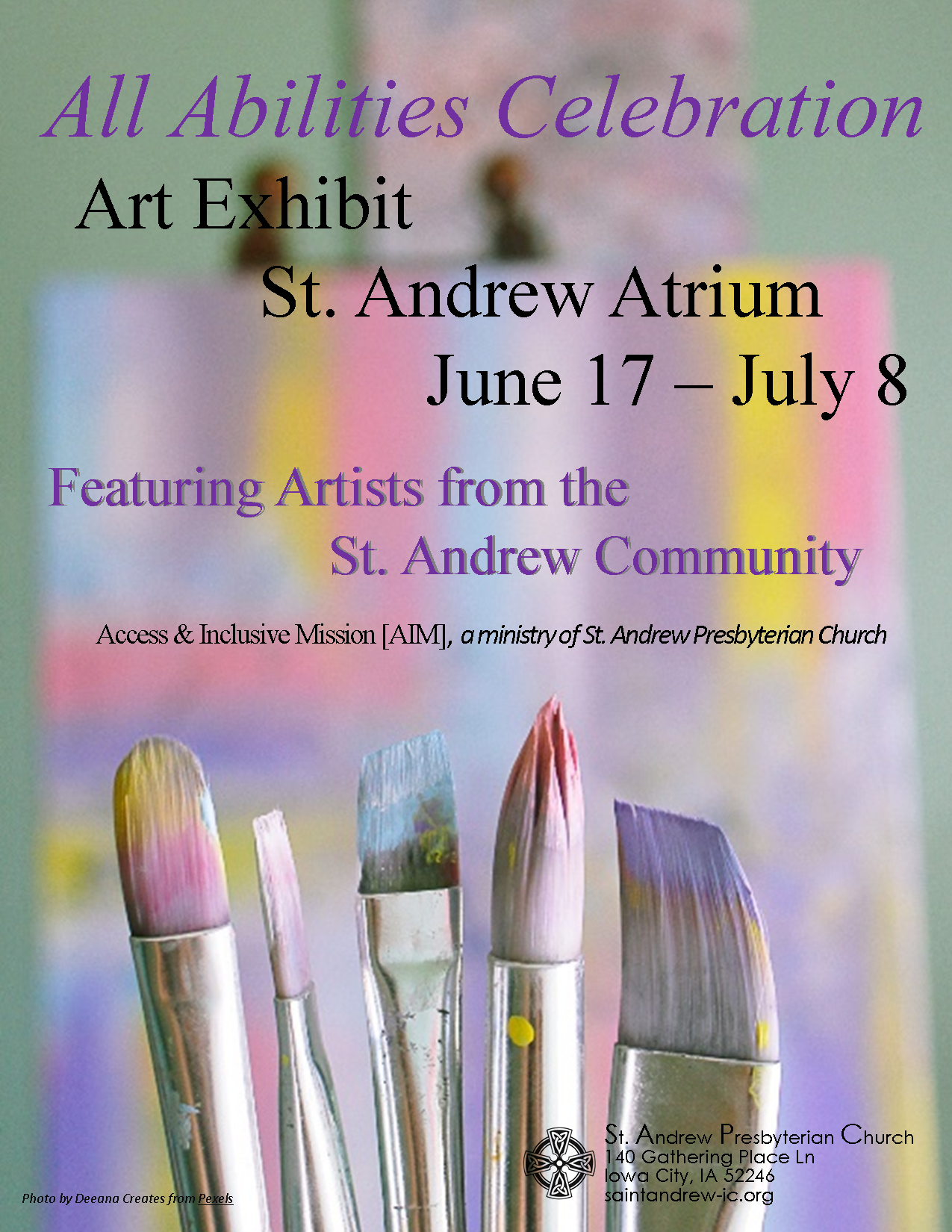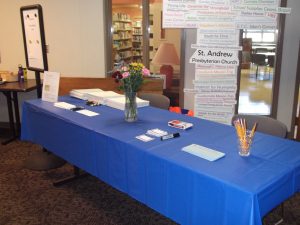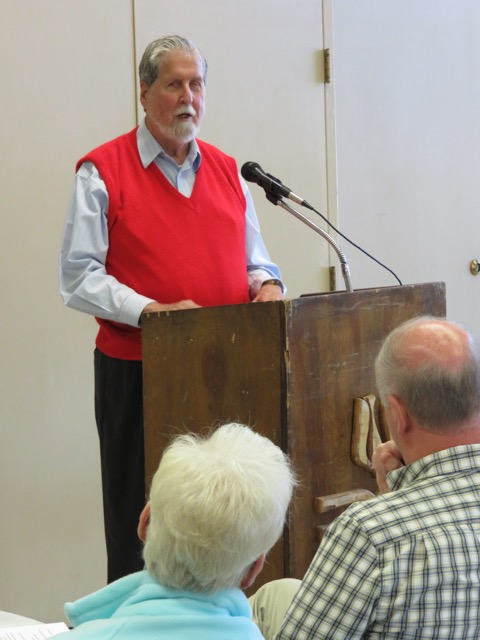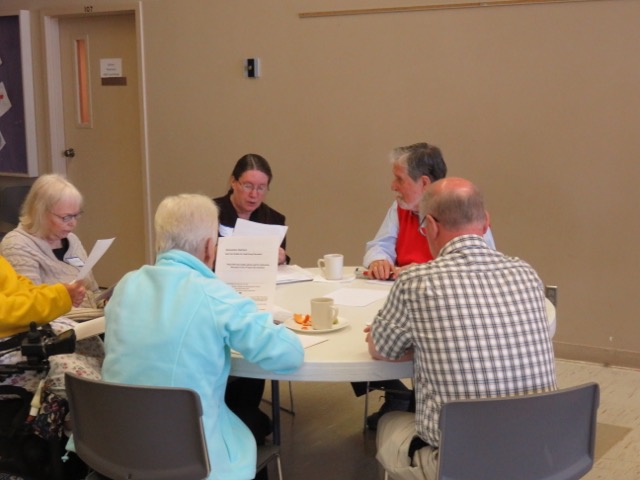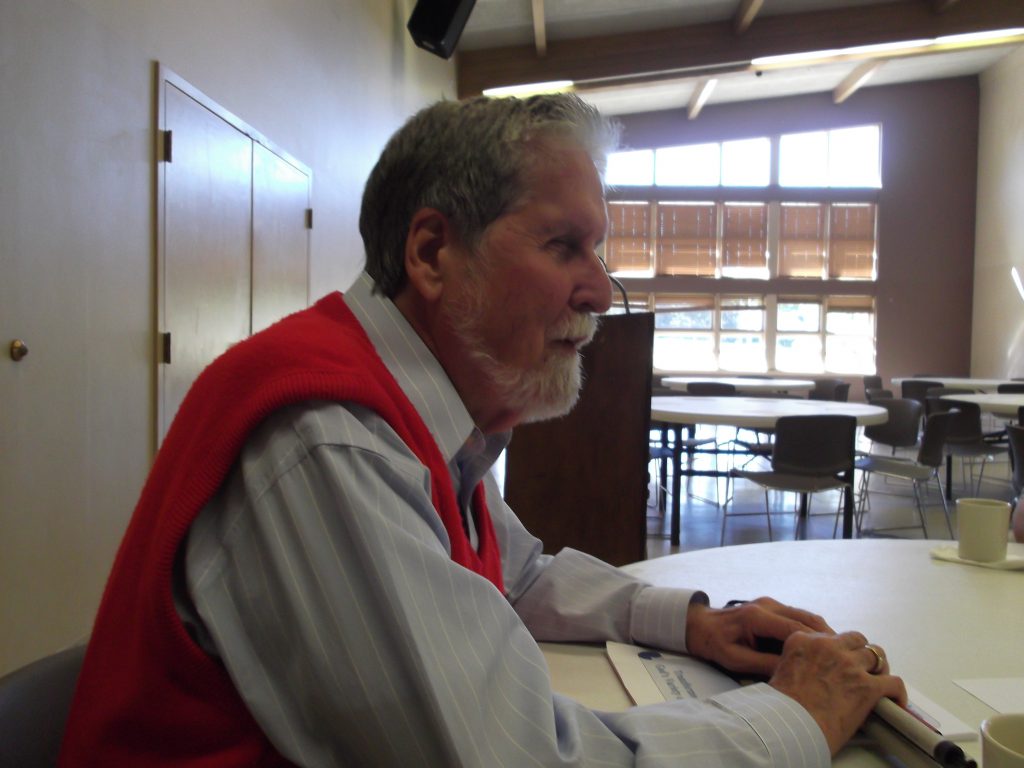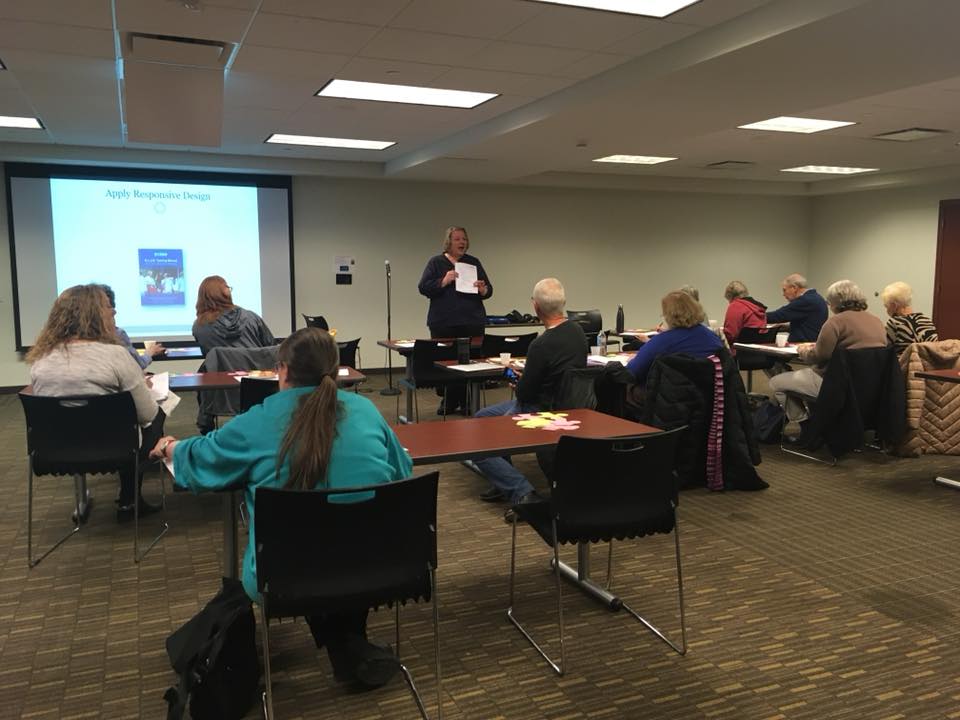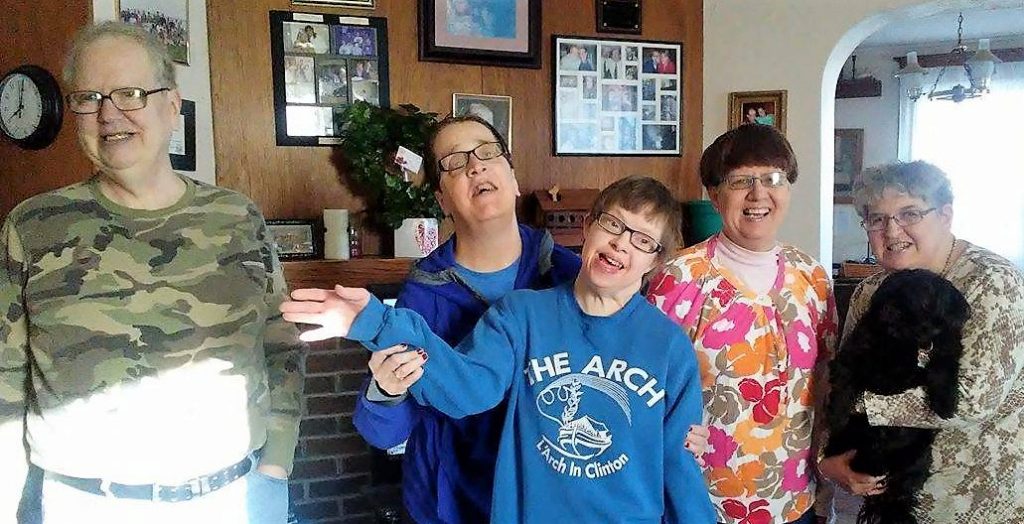Access & Inclusive Mission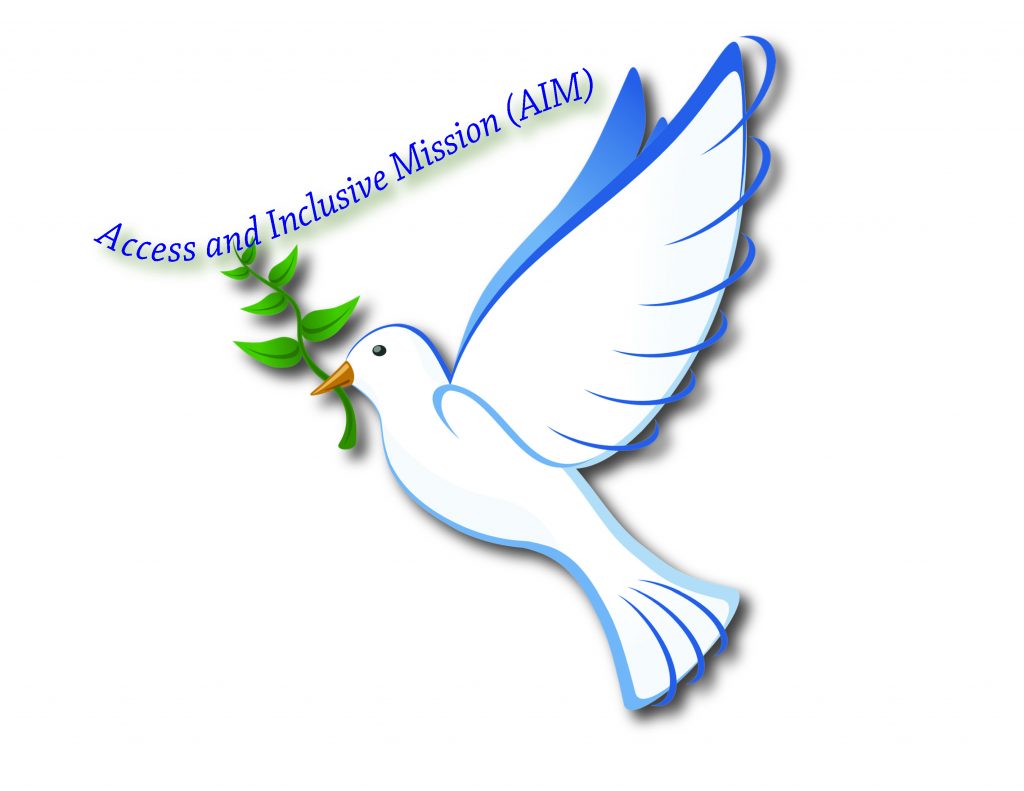
In 2013 as an advocate for the disabled, Marcia A. Murphy started an AIM Committee. The focus of AIM is to increase disability awareness and inclusion for those with physical, mental, emotional, and spiritual challenges; encouraging our religious and civic communities to be welcoming places for all!
Grants
Presbytery of East Iowa [PEIA]Grant $500
2015 Workshop
Keynote: Rev. Dr. Timothy H. Little
AIM Initiative, Marcia A. Murphy, Moderator, PEIA AIM Network
Synod of Lakes & Prairies
2016 Emerging Mission Grant $2,650
AIM Leadership Development Initiative/Marcia A. Murphy, Moderator, PEIA AIM Network
Disability Inclusion Workshop November 11, 2017
All are welcome!! View Flyer Here
Omaha Presbyterian Seminary Foundation
Lifelong Learning Program Grant $525
In addition: PEIA $225, MOS St. Andrew Presbyterian Church $300
Total: $1,050
2018 Disabilities & Faith Workshop
Marcia A. Murphy, Moderator, PEIA AIM Network
Presbyterian Church, USA
—A Welcoming Place for All—
Statement of Inclusion
“Central to our well-being is our need to belong, to have a place where we are accepted,
embraced and valued for who we are. Within the Body of Christ there are no exclusionary
clauses for disability or any form of judgment that says you aren’t needed or wanted here.
The gift of belonging to the Body of Christ, the communion of faith, is not ours to give, it is
Christ’s and Christ’s alone. Belonging is made complete when gifts are shared, accepted, and cherished.
Belonging is a shared experience at the table and in the community of faith where
we, as the family of God, live and work as the Body of Christ.
Within that body God enables us to value and cherish one another just as we are. May we
do so to the glory of God. May we seek to enable every child, teen, or adult, disabled or not,
to experience and know how vital each is to the body of Christ for together—we—are the heart of faith. To God be the Glory.” *
*Written by the Rev. Sue S. Montgomery, Disability Consultant, Presbyterians for Disability Concerns [PDC]; Presbyterian Health, Education, and Welfare Association [PHEWA]; Presbyterian Church (USA)
Ubi caritas et amour,
Deus ibi est
Where charity and love are,
God is there
AIM Initiatives
On June 29, 2014, we held our first annual Disability Awareness & Inclusion Celebration Sunday worship service at
St. Andrew where Rev Dr Timothy H. Little was our guest preacher.
“Go out quickly into the streets and alleys of the town and bring in the poor, the crippled, the blind and the lame…Go out to the roads and country lanes and compel them to come in, so that my house may be full.” Luke 14:21b, 23 NIV
Rev Little was our keynote speaker for a 2015
interdenominational workshop at St. Andrew
Then Jesus said to his host, “When you give a luncheon or dinner, do not invite your friends, your brothers or sisters, your relatives, or your rich neighbors; if you do, they may invite you back and so you will be repaid. But when you give a banquet, invite the poor, the crippled, the lame, the blind, and you will be blessed. Although they cannot repay you, you will be repaid at the resurrection of the righteous.” Luke 14:12-14 NIV
The Parable of the Great Banquet
When one of those at the table with him heard this, he said to Jesus, “Blessed is the one who will eat at the feast in the kingdom of God.”
Jesus replied: “A certain man was preparing a great banquet and invited many guests. At the time of the banquet he sent his servant to tell those who had been invited, ‘Come, for everything is now ready.’
“But they all alike began to make excuses. The first said, ‘I have just bought a field, and I must go and see it. Please excuse me.’
“Another said, ‘I have just bought five yoke of oxen, and I’m on my way to try them out. Please excuse me.’
“Still another said, ‘I just got married, so I can’t come.’
“The servant came back and reported this to his master. Then the owner of the house became angry and ordered his servant, ‘Go out quickly into the streets and alleys of the town and bring in the poor, the crippled, the blind and the lame.’
“‘Sir,’ the servant said, ‘what you ordered has been done, but there is still room.’
“Then the master told his servant, ‘Go out to the roads and country lanes and compel them to come in, so that my house will be full. Luke 14: 15-23 NIV
On November 11, 2017, the AIM program put on a workshop on the topic of Disability Awareness, Inclusion, and Belonging, with Ms. Barbara Newman as keynote, held in Coralville, Iowa. She is a national leader, Christian educator and director at CLC Network. Ms. Newman also filled the pulpit the next day, Sunday, November 12, at St. Andrew Presbyterian Church, Coralville-Iowa City, Iowa. It was a joyful weekend, full of learning, inspiration, and fellowship!
One Body With Many Members
The eye cannot say to the hand, “I don’t need you!” And the head cannot say to the feet, “I don’t need you!” On the contrary, those parts of the body that seem to be weaker are indispensable, and the parts that we think are less honorable we treat with special honor. And the parts that are unpresentable are treated with special modesty, while our presentable parts need no special treatment. But God has put the body together, giving greater honor to the parts that lacked it, so that there should be no division in the body, but that its parts should have equal concern for each other. If one part suffers, every part suffers with it; if one part is honored, every part rejoices with it. 1Cor 12:21-26 NIV
The Beatitudes for an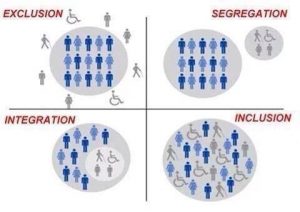
Inclusive Church
Blessed are those who value the gifts of all persons as members of the Body of Christ.
Blessed are those who treat people with disabilities as persons first, not as “the disabled.”
Blessed are those who can be open about their own hidden disabilities.
Blessed are those who speak directly to people with disabilities, who do not speak to them through a companion.
Blessed are those who speak at eye level to people in wheelchairs.
Blessed are those who identify themselves when they speak to people who are blind or visually impaired
and who do not walk away without saying so.
Blessed are those who do not shout at people who are hard of hearing, but who speak directly and clearly.
Blessed are those who take time to listen to people whose speech may sound “different.”
Blessed are those who treat adults like adults, who resist the temptation to “talk down” or to pat the
head of a person in a wheelchair.
Blessed are those who do not use hand signals but who use clear, verbal directions for people who are blind.
Blessed are those who would like to be helpful but who ask first, “Can I help you in any way?”
Blessed are those who do not grab and drag a person who is blind, but who offer an arm, usher style.
Blessed are those who “partner” with someone with a disability when going through a buffet line.
Blessed are those who leave table space and wide aisles for people using wheelchairs.
Blessed are those who do not stop to discuss hot issues on the stairways and keep handrails clear.
Blessed are those who do not lean on wheelchairs because they know these are like extensions of the
body for persons who use them.
Blessed are those who save elevator space for those who need it and take the stairs or escalators themselves.
Blessed are those who do not pet or play with a guide or service dog.
Blessed are those who are aware of those around them in the event of an emergency.
Rejoice and be glad for you will make many new friends and gain a deeper understanding of what it
means to be members of the Body of Christ.
Written by the Reverend Bebe Baldwin
Recommended Reading
Handbook 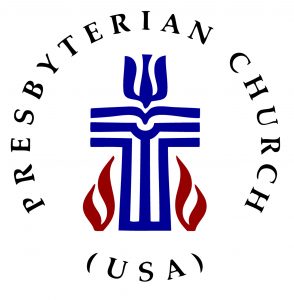
AIM Network Handbook: an interview with the Rev Dr Timothy H. Little by Marcia A. Murphy.
Rev Little, as founder of AIM, offers his experience and wisdom on the subject of disability awareness and inclusion for those thinking of starting an AIM committee or program in their religious or civic organization. This is a guide that offers ideas for how to create a more healing and welcome environment in your community for and with those who face special challenges.
Books
The Bible, Disability, and the Church:
A New Vision for the People of God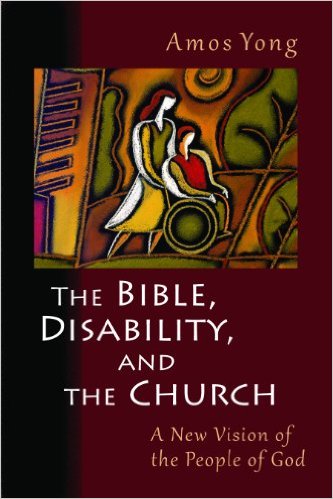
by Amos Yong, Ph.D.
Summer Institute of Theology & Disability Faculty
Professor, Fuller Theological Seminary, California
Director, Center for the Missiological Research (CMR) &
Professor for Theology & Mission
School of Intercultural Studies
From back cover of the book:
A theologian whose life experience includes growing up alongside a brother with Down’s syndrome, Amos Yong in his book rereads and reinterprets biblical texts about human disability, arguing that the way we read biblical texts, not the Bible itself, is what causes us to marginalize people with disabilities. Revealing and examining the underlying stigma of disability that exists even in the church, Yong shows how the Bible offers good news for people of all abilities–and he challenges churches to become more inclusive communities of faith. The Bible, Disability & the Church at Amazon
Articles
English translation of newspaper article published in Iceland Monitor
http://www.mbl.is/greinasafn/grein/1214305/
Written by Halldora Jonsdottir when 30 years old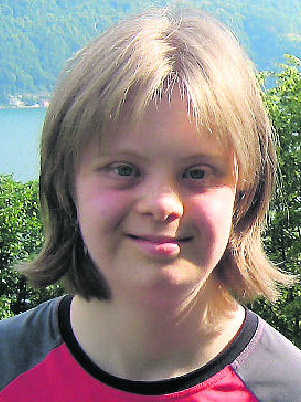
“Hello. My name is Halldóra. I read this article in the newspaper the other day that caught my attention and at the same time made me angry and sad. There was this woman who wrote something about how people with Down syndrome should not exist. Therefore I would like to share my opinion. I have Down syndrome but FIRST AND FOREMOST I AM Halldóra. I do a million things that other people do. My life is meaningful and good because I choose to be positive and see the good things in life. I go to work, attend school and have hobbies. I enjoy spending time with my friends and family and I like being around people.
In my world there are all kinds of people, both old and young, disabled and non-disabled. It has taught me a lot and I can see that many of us have some kind of difficulty that we are battling, both physically and mentally. That’s just how life is—it’s not more perfect than that. And it doesn’t matter if you are young or old, rich or poor.
So I thought: Who is perfect? Who can say that we who have Down syndrome are worth less that anyone else? We are all different and would it be so great if we were all alike?
My opinion is that it is much more fun that we aren’t all alike, because we can learn so much from people who are different from ourselves. I like learning from others and you are free to learn from me. I choose to enjoy the life I was given, to be happy with what I have and make the best of what I’ve got. It’s not a bad life, or what do you think? This is my opinion.”
The Power of Those Who Seem Weaker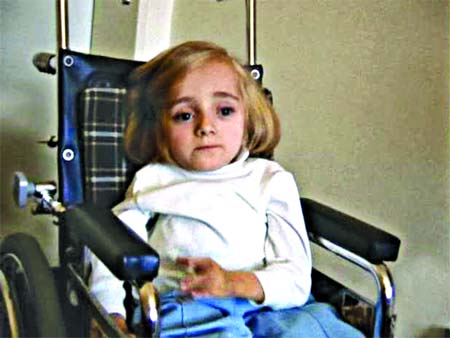 :
:
People With Disabilities in the Church
Article by Jeff McNair, Ph.D.
Professor of Education/Director of M.A. in Disability Studies
California Baptist University
PDF Article: The Power of Those Who Seem Weaker by Jeff McNair, Ph.D.
AIM Initiative: A Visit to L’Arche Clinton
A Visit to L’Arche Clinton
By Marcia A. Murphy
[long version]
A Visit to L’Arche Clinton–Article
A Visit to L’Arche Clinton PDF
Christ’s Compassion
John’s disciples told him about all these things. Calling two of them, he sent them to the Lord to ask, “Are you the one who is to come, or should we expect someone else?”
When the men came to Jesus, they said, “John the Baptist sent us to you to ask, ‘Are you the one who is to come, or should we expect someone else?’”
At that very time Jesus cured many who had diseases, sicknesses and evil spirits, and gave sight to many who were blind. So he replied to the messengers, “Go back and report to John what you have seen and heard: The blind receive sight, the lame walk, those who have leprosy are cleansed, the 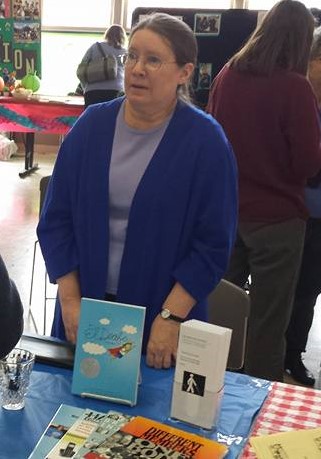 deaf hear, the dead are raised, and the good news is proclaimed to the poor. Blessed is anyone who does not stumble on account of me.”
deaf hear, the dead are raised, and the good news is proclaimed to the poor. Blessed is anyone who does not stumble on account of me.”
Luke 7:18-23 NIV
To find out more about AIM contact:
Marcia A. Murphy, who can direct you to numerous resources on-line.
Feel free to start your own AIM group in your church or organization.
Thank you.
